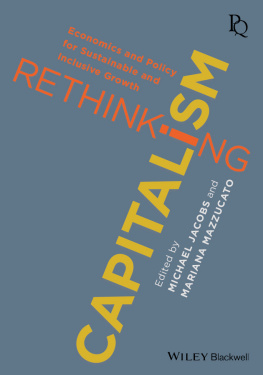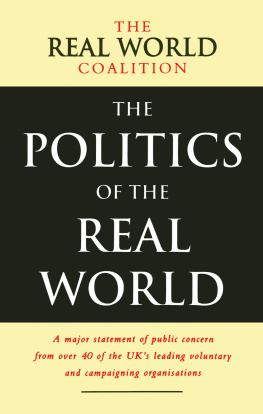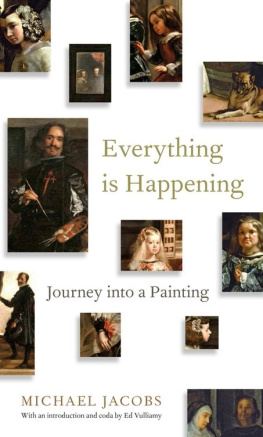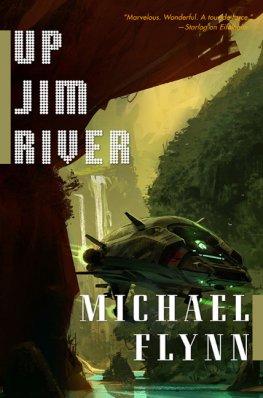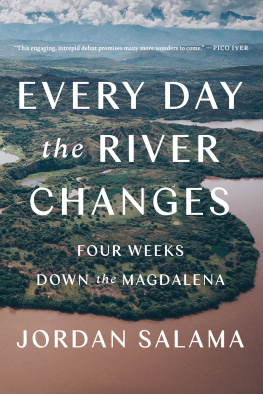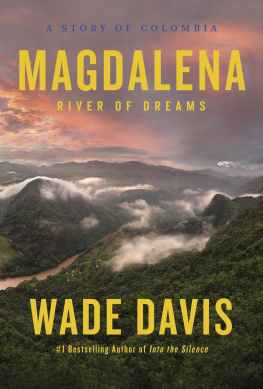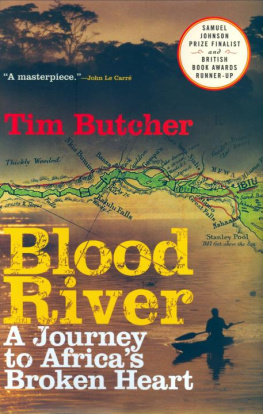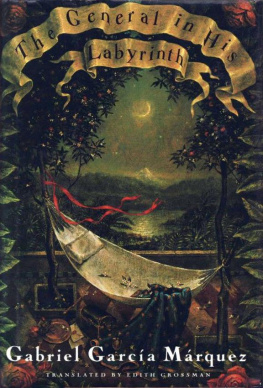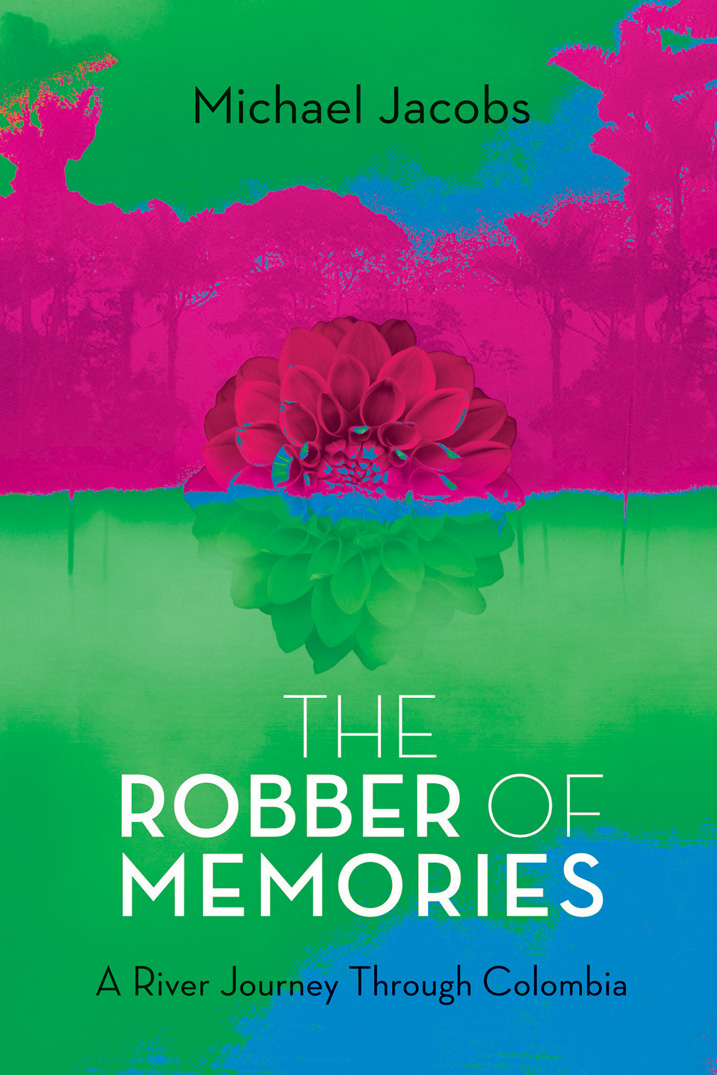Table of Contents
Guide
THE ROBBER
OF MEMORIES
Also by Michael Jacobs
Andes
THE ROBBER
OF MEMORIES
A River Journey through Colombia
MICHAEL JACOBS
COUNTERPOINT
BERKELEY
Copyright Michael Jacobs 2013
First published in Great Britain by Granta Books 2012
All rights reserved under International and Pan-American Copyright Conventions. No part of this book may be used or reproduced in any manner whatsoever without written permission from the publisher, except in the case of brief quotations embodied in critical articles and reviews.
Map on copyright Barbara Hilliam
Library of Congress Cataloging-in-Publication Data
Jacobs, Michael, 1952,
The robber of memories : a river journey through Colombia / Michael Jacobs.
pages cm
ISBN 978-1-61902-196-9
1. Jacobs, Michael, 1952, Colombia,Magdalena River. 2. Jacobs, Michael, 1952,Colombia,Magdalena River Valley. 3. Magdalena River (Colombia),Description and travel. 4. Magdalena River Valley (Colombia),Description and travel. 5. Alzheimers disease. 6. Garca Mrquez, Gabriel, 1952,Health. I. Title.
F2281.M23J34 2013
918.61,dc23
2013018054
Cover design by Jenny Grigg
Interior design by M Rules
COUNTERPOINT
1919 Fifth Street
Berkeley, CA 94710
www.counterpointpress.com
Distributed by Publishers Group West
10 9 8 7 6 5 4 3 2 1
To the memory of Brendan Jacobs (19202011) and Tom Rae (19542011)
... and he realized that the Magdalena, father of waters, one of the great rivers of the world, was only an illusion of memory.
Gabriel Garca Mrquez,
Love in the Time of Cholera
CONTENTS
I can still remember his eyes as they were late that night, full of spark at first, then alternately pensive, empty and tired, with the musicians playing on regardless, endlessly regaling the great writer with the vallenatos of his Caribbean youth. For a while I was sure he had fallen asleep. His head had long stopped nodding to the music, and his heavy eyelids appeared firmly shut. I remained sitting before him like a timid and overawed acolyte, sweating from excitement and the heat. It was then that I noticed that he was not asleep at all. His eyes were half-open and staring quizzically towards me, wondering perhaps who I was. I felt for a few moments that I had turned into his younger self, while he had become a caiman watching me from the banks of a tropical river, somnolent and near invisible, but with eyes that peered above the murky waters, taking in everything.
I had seen him for the first time only the night before. It was January 2010, and a literary festival had just begun in the Colombian coastal town of Cartagena de Indias. People I met on the international festival circuit had been brought together with a large cross-section of Colombias incestuous social elite. Any pretence at intellectual exchange had vanished by nighttime, when the brightly coloured colonial town revealed its hedonistic core in a near-continuous round of parties. The more hardened revellers usually ended up at the Bazurco Social Club, a celebrated nocturnal haunt in a district full of expats, prostitutes, budget tourists and lovers of the shabbily atmospheric.
I had gone there shortly before midnight. Drinkers were spilling out onto the street, sheltering from the fast, African rhythms of champeta that pounded from the high-ceilinged interior. I went inside. I wound my way past the erotically embraced dancers, squeezed through the jostling, beer-drinking students and reached the bar counter. A group of young publishers and journalists was gathered there in tight proximity, laughing and drinking rum. One of them, an English friend, told me to have a look at the back of the bar. You wont believe whos there, he said with a drunken grin.
Among the faces of those seated at a long table at the back I recognized a Granadan poet, his best-selling novelist wife and a Madrid-based cultural commentator who had just brought out a book of literary memoirs entitled Scrambled Egos. And then I saw him, sitting next to the poet, but talking to no one, completely still, staring into the smoky space. The legendary Colombian writer.
His moustache was unmistakable, as were his receding thick curly hair, large glasses and dark, deep-set eyes. But my first thought on seeing this face almost as iconic for me as that of Che Guevara was that he was not the person everyone thought he was but rather a lookalike, an impersonator, someone who had been hired to lend a touch of parody to this literary occasion. He could have been one of those living statues who pose motionless for hours to attract the attention of shoppers and tourists. He moved barely at all, and then only when the inevitable admirers began shyly approaching him to ask for his signature, to express their devotion. Then his arm would jerk briefly into action, and a curt smile would appear on his face, as if a coin had been placed in a bowl in front of him.
His presence late at night in a popular bar was not, on reflection, particularly surprising. He was a man of the people, a lover of low life, a person with the grassroots appeal of a football star. What was remarkable was that he had finally come back to Cartagena. It was almost as if the Messiah had reappeared. Though he had a house in the colonial centre, he now barely moved from his adopted home in Mexico City. He notoriously avoided literary festivals, and had not been in Cartagena since 2006, when his arrival had created severe congestion of the old towns streets. He was now in his early eighties and had been seriously ill with cancer. I had heard various rumours about his imminent death.
However, the person sitting in the Bazurco Social Club showed little sign of physical ill health, only of loneliness and a lack of connection with those whom he was with. Extreme fame had perhaps isolated him in his own world, turning him in old age into what his fiction predicted, the patriarch in autumn, the colonel to whom no one speaks, the general in his labyrinth, the embodiment of one hundred years of solitude. And then, as I continued looking at him, in furtive snatches across the crowded bar, I noticed something else. He had a look which I had observed so often in my elderly parents a slightly angry and puzzled look, as if he wanted everyone around him to go away, as if he had become frighteningly aware that he had no idea who these people were and what he was doing in their company. My father had died of Alzheimers in 1998, with no memory of his two children or of what he had done in his life. My mother, now weeks away from her ninetieth birthday, was in an advanced stage of dementia.
As I stood wondering whether the writer was going the same way as my parents, I considered going up to greet him, as so many others in the bar were now doing. The encounter, I suspected, would be as fleeting and meaningless as the touching of a holy relic, but at the very least I would be able to say afterwards that I had shaken hands with one of the giants of modern literature. An acquaintance from the festival handed me a bottle of beer, so I abandoned my plan. I rejoined the heavy drinkers at the bar counter. I doubted whether I would have a further opportunity to meet the writer.
But our paths would cross again the following night, at a party given by a Venezuelan millionaire at a boutique hotel in the tourist heart of the walled city. The guests were largely gathered on a roof terrace, dressed in smart cottons, sipping cocktails, taking in a vista of floodlit domes. The scene had the glamorous unreality of a rum advert, with the statutory quota of the bronzed and the beautiful. After a couple of hours or so, mainly listening to in-jokes and obscure literary gossip, I found myself alone with my thoughts, cut off from the general conversation, until a Moroccan novelist, who had briefly disappeared from our group, came back to join us, trembling with emotion. She had gone in search of a bathroom and had stumbled onto a small patio, where she had spotted the writer she referred to simply as


